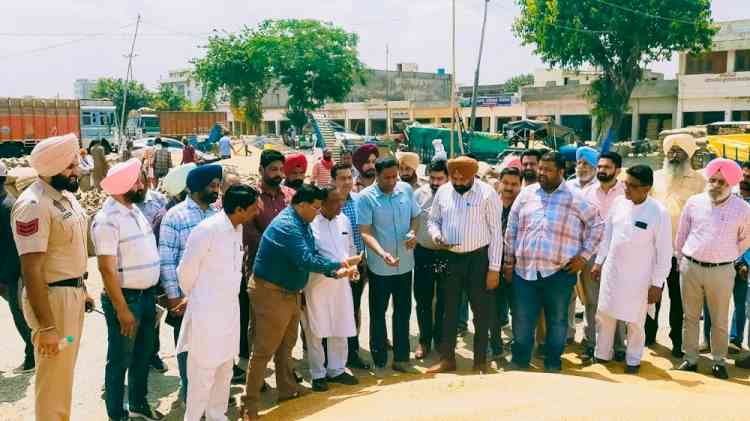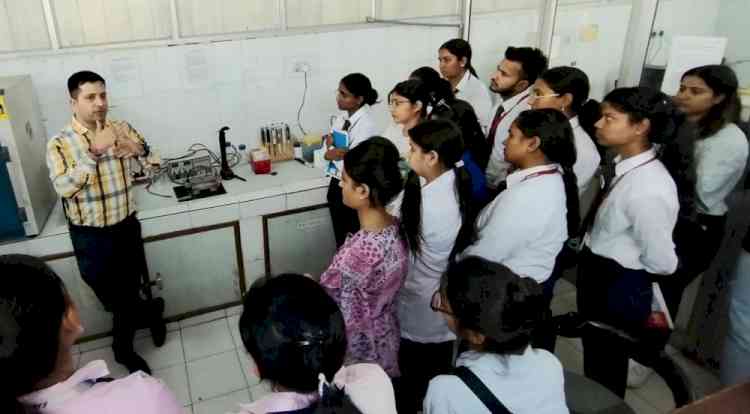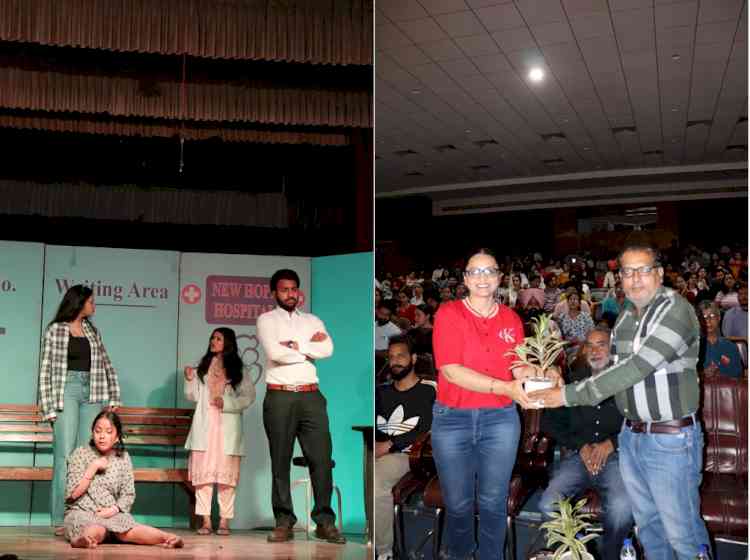National Conference on ‘Packaging Sustainability – Towards a Circular Economy’ held

Hyderabad, November 15, 2018: A one-day national conference on ‘Packaging Sustainability – Towards a Circular Economy’ organized by Indian Institute of Packaging – Hyderabad was held here today at Hyderabad. About 250 delegates comprising of decision makers and influencers from Food, Pharmaceutical Consumer Industries and material manufacturers, students, etc. attended the conference. Addressing the gathering at the inaugural ceremony, Chief Guest for the national conference, Mr. Sanjay Singh, Divisional Chief Executive, ITC Ltd. – Paper Boards & Specialty Papers Division (PSPD) said that packaging products have to be recyclable. We can’t eliminate plastic everywhere but single-use plastic can be eliminated. It is important to get the right packaging material which is good for the environment but what is also important is the process in preparing the packaging material.
On the occasion, Mr. Sanjay Singh shared what they did in ITC for sustainability. He stated that 40 years back the Bhadrachalam unit was started, he joined around the same time and the state govt. had invited ITC to start a paper mill. There was deep forest and plenty of wood available, we started cutting trees from the forest, from trees we had made paper, not realizing the damage we were doing to the environment. But soon, in a year or two, we released that the forest will not last long. If we don’t do anything the mill will shut. So, new technology from Brazil was brought and we started growing trees. But we didn’t have land. We found that lot of farmers were there who were growing crops but not getting good returns. So, they were roped in to grow trees for making paper.
Earlier trees used to take about 12-15 years to grow, but with the new technology the trees will grow in 4-5 years. With this productivity improved, farmers got more money and the whole thing took off. Today we have 1,50,000 hectares of plantation that the farmers and growing, we are increasing the green cover in the state, we are increasing the water table. Those days we created jobs in rural areas. This can be said to be part of the circular economy.
Another thing we did it was four years back, when Orissa invited ITC to invest in their state. Lot of farmers were there in Orissa from Bangladesh which the Govt. has settled in Orissa. So, the company asked the government to build a bridge between Telangana and Orissa. The distance from the place to the plant of 250 kms was brought down to 80 kms. The impact was that farmers could grow wood for trees, the transportation cost came down and less of carbon emission. Also it increased the production. Today India imports a lot of pulp, board and paper, why should we do that, he questioned. This program was a win-win for all and the program of plantation is catching up in big way and helping us. Today, ITC has become carbon positive, water positive and solid waste positive.
When we started the paper mill, 40 years back the recyclable energy that we had was hardly 20-25%. Today, we have brought it to 50 % recyclable energy and the target for the next 10 years is to achieve 60-65% energy recyclable. Signing off he said that one must do whatever is good for the environment; whatever is good for the environment is good for the country, economy and the company.
Speaking at the inaugural earlier, Prof. (Dr.) N.C. Saha, Director, Indian Institute of Packaging said that Circular Economy is a big issue across the world not only India. Circular economy is to leave no waste behind. Leave nothing behind for the future generation. Earlier sustainability was meeting their own needs in future, but now it also means social equity and economic development. Sustainability and innovation were two different things, but now time has come for ‘sustainable innovation’.
The global packaging market is estimated to be $880 billion and is growing at an annual rate of 13%. The Indian packaging industry constitutes about 4 per cent of the global packaging industry. India’s packaging industry has been developing due to the demand in food and pharma industries. The growth in lifestyle and consumption pattern has increased the demand for the packaged products resulting in growth in packaging industry, said Dr. N.C. Saha.
IIP is adding centres in Andhra Pradesh, Bengaluru, Guwahati and Ahmedabad. In terms of infrastructure facilities, IIP is recognized as the number one institute. IIP is involved in many activities but basically is a packaging testing and certification for mandatory certification given by the Govt. of India, Dr. Saha added. The Indian Institute of Packaging, the apex body of the packaging industries in India set up in May 1966 by the Indian Packaging and allied industry and the Government of India, Ministry of Commerce with the objective of improving packaging standards in India.
Speaking on the sidelines, Mr. Vagish Dixit, Chairman, IIP Hyderabad said that the main focus of the industry today is on plastic recycling. Recycling of Plastics include plastics, metals, paper and glass. Light weighting and also developing bio-degradable materials is also there. Efforts are being made to find ways to recycle Multi-layered laminates used in flexible packaging to use as feed stock for burning in cement kilns.
Guest of Honour Mr. Pradeep Chowdhry, MD, Gemini Edibles & Fats India Pvt. Ltd., addressing the gathering said that in packaging, particularly in food, we have come a long way. In India, our consumption of food is increasing faster than the population growth. When we earn more, when our disposable income is higher, we consume more food. We are gradually moving towards packaged consumption. Today, everything in food right from flour, oil, etc. almost 50-60% things are packaged and hence the importance of packaging today. But the collection of waste is not there. Most over the world, big companies like Nestle, Cadbury, etc. all are talking about sustainability. If you are not sustainable, you will not get them as customer. You will lose business if you are not sustainable, he said. In India laws exist, but we all have a role to play. Enforcement may or may not be there, but we as a conscious citizen have a role to play and do our little bit for India and the world, he opined.

 cityairnews
cityairnews 
















